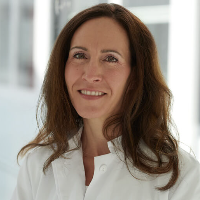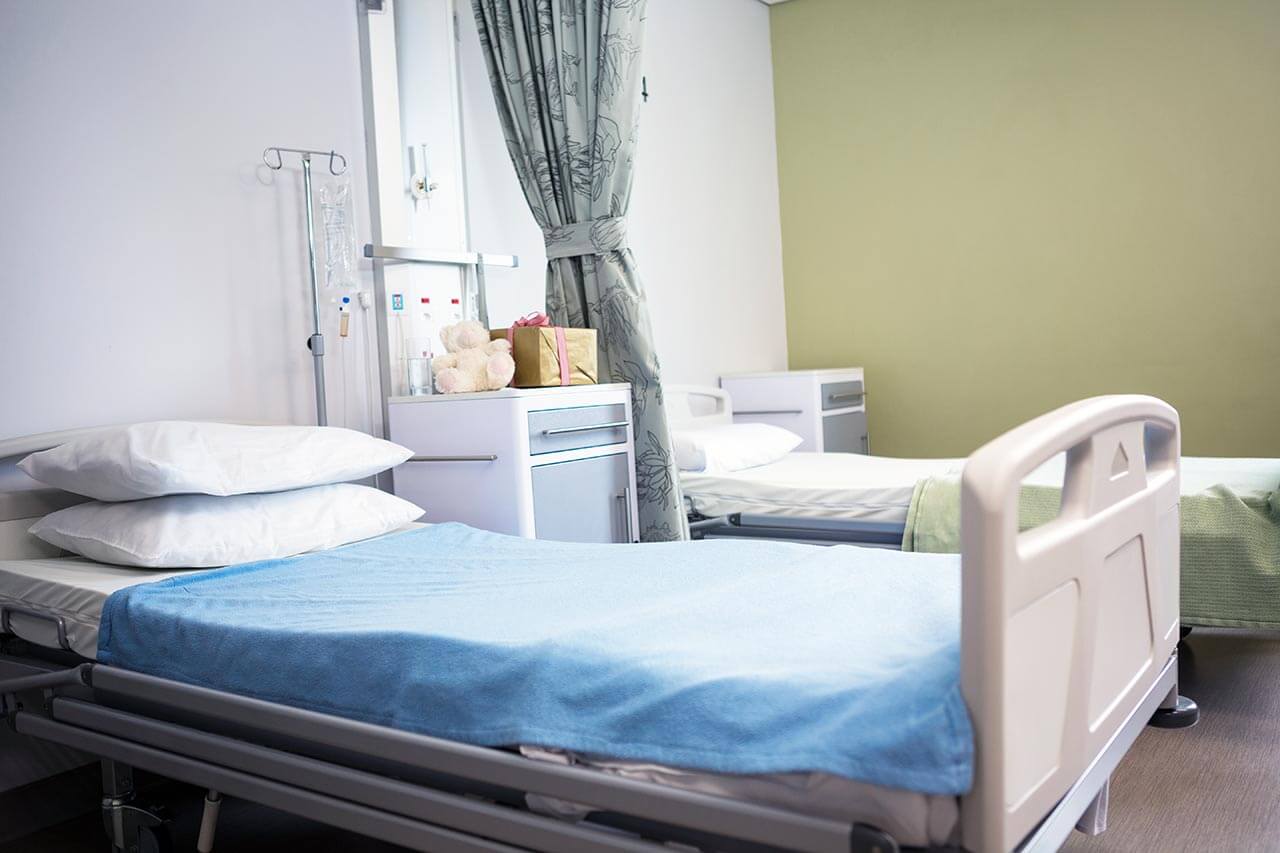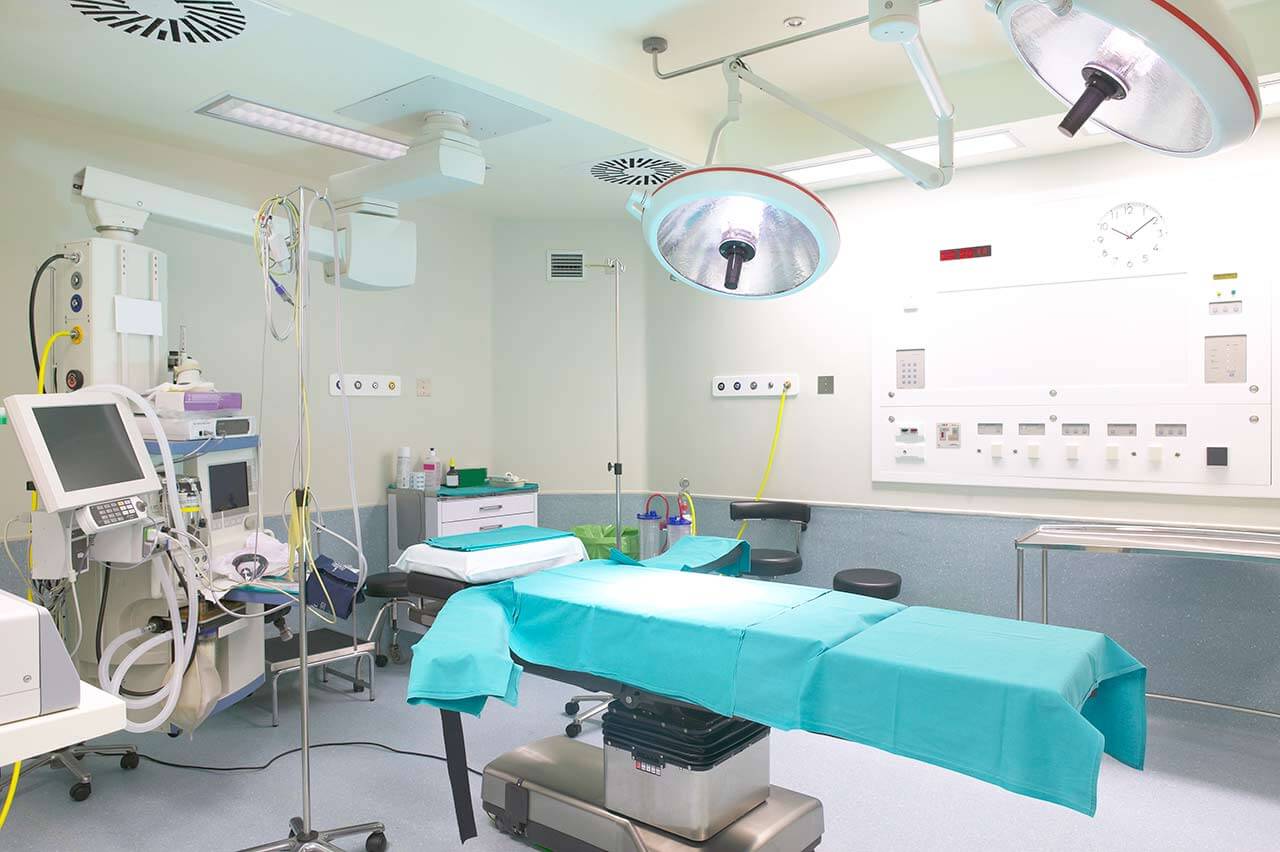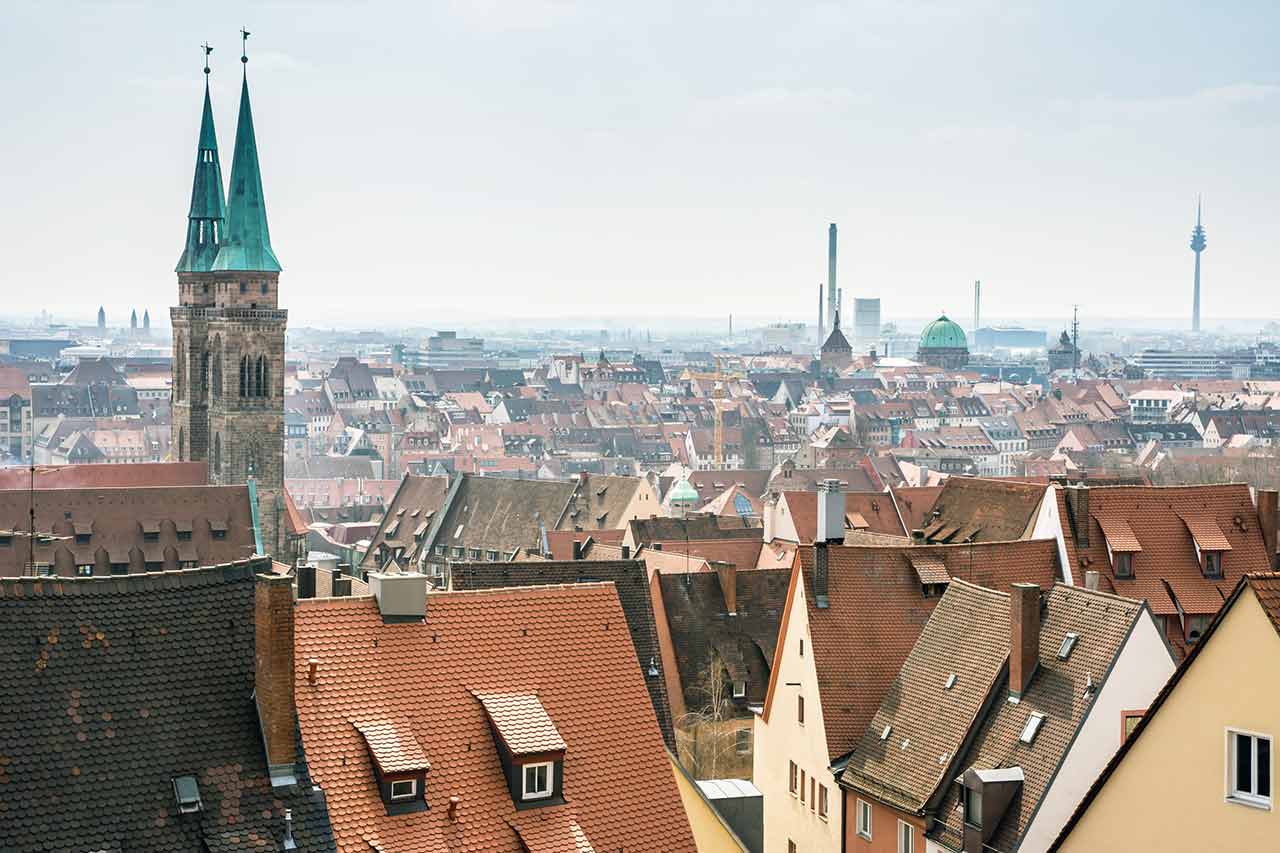
The program includes:
- Initial presentation in the clinic
- clinical history taking
- physical examination
- review of medical records
- laboratory tests:
- complete blood count
- general urine analysis
- biochemical analysis of blood
- indicators of inflammation
- indicators blood coagulation
- x-ray examination
- CT/MRI scan
- preoperative care
- minimally invasive periacetabular osteotomy
- symptomatic treatment
- control examinations
- physiotherapeutic procedures
- orthopedic appliances
- the cost of essential medicines and materials
- nursing services
- full hospital accommodation
- explanation of future recommendations
Required documents
- Medical records
- X-ray examination, MRI/CT scan (if available)
Service
You may also book:
 BookingHealth Price from:
BookingHealth Price from:
About the department
The Department of Pediatric Orthopedics at the Children's Hospital Nuremberg offers all the possibilities of modern medicine in the area of its specialization. The department's doctors provide comprehensive diagnostics and treatment of congenital and acquired musculoskeletal diseases in children. The medical facility has gained vast experience in the correction of spinal curvature in young patients. Surgical removal of benign skeletal neoplasms is successfully performed here. The department has state-of-the-art diagnostic rooms. Advanced diagnostic equipment allows doctors to assess the condition of the child's musculoskeletal system with minimal radiation exposure. During the elaboration of a treatment regimen, the specialists take into account the age of the child and the specifics of the orthopedic disease because it is important not only to achieve a therapeutic result but also to ensure the child's normal development and growth in the future. Only modern and reliable treatment methods are used in the department. In many cases, patients can receive medical care at specialized outpatient clinics. The team of pediatric orthopedists diagnoses and treats more than 3,000 young patients every year, thanks to which the department is known as the largest and most reputable medical facility in Nuremberg. The Head Physician of the department is Dr. med. Kerstin Remmel.
The department regularly provides medical care to children with foot deformities, the most common of which are clubfoot and planovalgus deformities. Clubfoot can be a congenital problem or it can occur due to neurological pathologies. In patients with this deformity, the inner edge of the sole is turned upward and excessively inward, and the toes are deviated inward, which results in motor restrictions and gait abnormalities in the child. If left untreated, clubfoot may lead to severe foot displacement and lower limb dysfunction. A clinical examination and an ultrasound scan are usually sufficient to make a diagnosis. As for the treatment, the most commonly used therapeutic approach is the Ponseti method (correction with plaster cast) with a subsequent achillotomy for Achilles tendon lengthening.
The department's specialists also have excellent professional skills in the treatment of planovalgus deformity, which may develop when a child begins to walk. During the diagnostics, doctors perform a thorough clinical examination and do 3D X-rays. A first-line treatment involves therapeutic exercises, and in complex cases with severe symptoms, surgical intervention may be considered.
An important focus of the department's clinical practice is the treatment of scoliosis (spinal curvature). Many people believe that scoliosis is only an aesthetic problem, but the spinal curvature causes pain, and internal organs may change their position due to compression, which negatively affects their function. During the diagnostic process, the department's doctors carry out a clinical examination and X-ray tests to determine the degree and nature of curvature. The treatment may include the Schroth method (an intensive course of physiotherapy), wearing a special corset, and surgical intervention, but, fortunately, invasive treatment is rarely required. Children are also provided with psychological support if necessary.
The department's specialists also treat thoracic kyphosis. Therapy is most often based on performing a special set of exercises to strengthen the stabilizer muscles of the back. Second-line therapy includes wearing a corset, and in cases of severe curvatures, special plaster casts are applied to the thoracic spine.
The medical facility employs highly qualified doctors specializing in the treatment of children with neuro-orthopedic pathologies. They treat young patients with cerebral palsy, myelomeningocele, Duchenne muscular dystrophy, arthrogryposis multiplex congenita, and hereditary motor sensory neuropathy. During the therapeutic process, doctors widely use physiotherapy, occupational therapy, and wearing orthoses. In cases of rapid progression of the pathological process, the specialists may perform surgical interventions on the joints or spine, depending on the specific diagnosis. The efforts of the specialists are focused on preserving and improving motor function as much as possible. It is important for the doctors that children can move without the help of another person and have a high quality of life.
The department's range of medical services includes:
- Diagnostics and treatment of foot diseases and deformities
- Clubfoot
- Planovalgus deformity
- Diagnostics and treatment of congenital and acquired lower limb deformities.
- X- and O-shaped lower limb deformities
- Leg length discrepancy
- Fibular aplasia
- Tibial pseudarthrosis
- Diagnostics and treatment of spinal curvatures
- Scoliosis
- Thoracic kyphosis
- Diagnostics and treatment of hip diseases
- Hip dysplasia
- Hip arthritis (coxitis)
- Perthes disease
- Slipped capital femoral epiphysis
- Diagnostics and treatment of knee diseases
- Anterior cruciate ligament injuries
- Meniscus tear
- Articular cartilage injuries
- Osteochondritis dissecans
- Patellar dislocation
- Diagnostics and treatment of juvenile idiopathic arthritis
- Diagnostics and treatment of chronic musculoskeletal pain
- Diagnostics and treatment of benign bone tumors
- Diagnostics and treatment of neuro-orthopedic diseases
- Cerebral palsy
- Myelomeningocele
- Duchenne muscular dystrophy
- Arthrogryposis multiplex congenita
- Hereditary motor sensory neuropathy
- Diagnostics and treatment of other orthopedic diseases in children
Photo of the doctor: (c) Klinik Hallerwiese-Cnopfsche Kinderklinik
About hospital
The Children's Hospital Nuremberg is a maximum care health facility that focuses on providing effective care for young patients in a pleasant and comfortable environment. The hospital admits children and adolescents up to 18 years old. Medical care can be provided on an inpatient or outpatient basis. Highly qualified doctors and experienced nursing staff work with children. The specialists get along well with young patients. The goal of the hospital's medical team is to provide patients with modern and most sparing treatment. It is also important for doctors to eliminate pain and discomfort during the therapeutic process. The key to successful clinical practice in the medical facility is the close cooperation of doctors, their high competence and vast experience, as well as the hospital's state-of-the-art medical equipment and modern infrastructure.
The hospital has more than ten specialized departments. Priority areas include pediatric otolaryngology, surgery, urology, orthopedics, endocrinology, oncology, hematology, pulmonology, and neuropediatrics. Patients are offered innovative treatments that have proven themselves at the international level. Surgical treatment involves the wide use of sparing, minimally invasive techniques, after which children recover quickly and experience virtually no pain.
The hospital admits more than 15,000 young patients every year, most of whom are treated on an outpatient basis without mandatory hospitalization. Each child receives personalized care. The treatment is accurately planned, and the doctor tells the parents about its specifics. An important aspect is a friendly and attentive attitude towards children, as well as understanding their fears and needs.
The Children's Hospital Nuremberg has repeatedly received the "Ausgezeichnet. FÜR KINDER" quality certificate. This certification is granted to the best children's hospitals in Germany, which regularly demonstrate high treatment success rates.
Photo: (с) depositphotos
Accommodation in hospital
Patients rooms
The patients of the Children's Hospital Nuremberg live in comfortable rooms designed in a child-friendly style. The furnishing of a patient room includes a comfortable automatically adjustable bed, a bedside table, a table, chairs, and a wardrobe. The hospital has a Rooming-in system, thanks to which parents can stay in the same room with their child. To ensure interesting and pleasant leisure time for children, the hospital has excellent playrooms, where every child can find something to do and toys to their liking.
Meals and Menus
The patients at the hospital are offered three tasty and balanced meals a day: breakfast, lunch, and dinner. With appropriate clinical indications, an individual menu may be developed for the child.
Further details
Standard rooms include:




